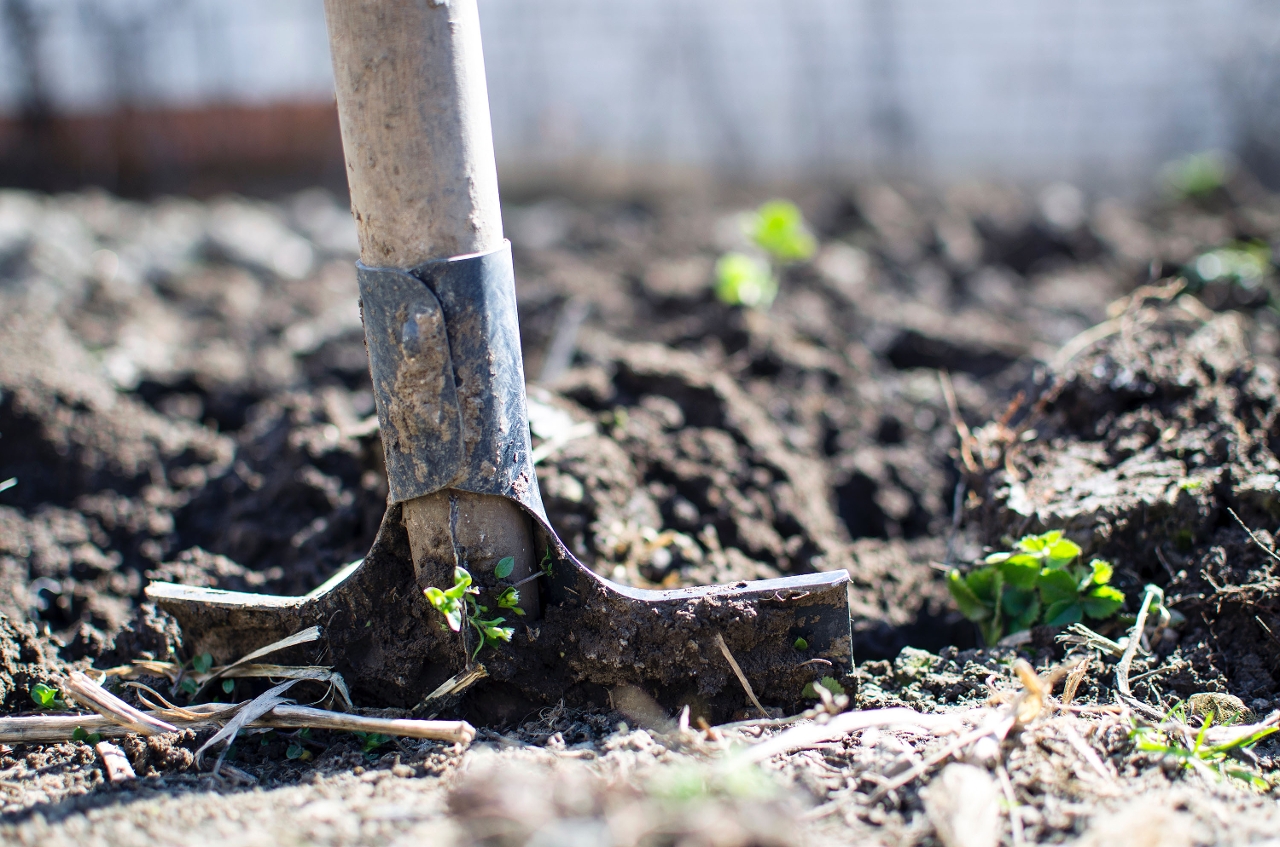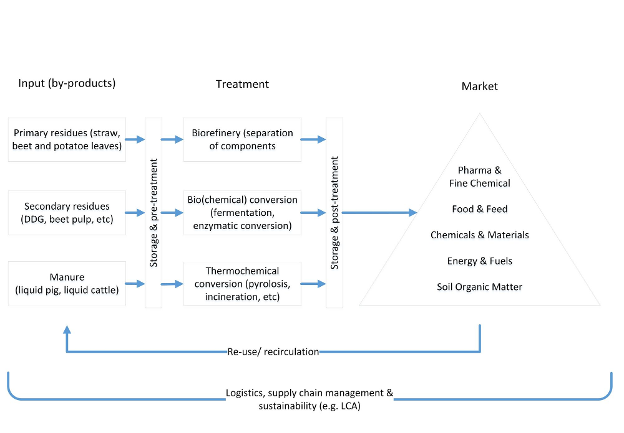Cookies
Van Hall Larenstein treats its customers' information with the utmost care and will never make this information available to third parties. Read more about us Privacy and Cookie Policy

Circular agro and food chains are characterised by regional cycles of nutrients and materials. This requires businesses to be linked in ways that ensure the outputs of one process become the inputs of another process. New business models are being developed that focus on circular and bio-based production. These include refining duckweed for protein and reducing food waste. Business models are still often associated solely with economic value, but it’s becoming increasingly important to include environmental impact indicators. Examples include the challenges around climate change, land use and the use of fossil-based energy. We can’t assume that circular enterprises will lead to reduced footprints.

The applied research group on the Environmental Impact of Circular Agro-Food Chains is an associate applied research group linked to the applied research group on Sustainable Agribusiness in Metropolitan Areas. The aim of the associate applied research group is to provide an understanding of the environmental impact of agro and food chains that aspire to move to a circular method of production. Businesses of the future will be more dependent on each other’s by-products and on finding ways of extracting value from them as a way of moving towards a circular and biobased economy. A key aspect of this is the understanding that these might not always be more sustainable than fossil-based products. The pursuit of circularity can’t be at the expense of inherent sustainability. It’s important to be able to express this in terms of units and indicators so that we can get a sense of how a particular business and the chain as a whole are performing not just on an environmental level, but also at the financial, economic and social levels. Knowing this is important not just to those involved, but also as part of the social debate on issues such as reducing the consumption of animal-based foods, reducing the use of scarce resources and reducing greenhouse gas emissions. A range of projects are currently being designed (in partnership with the aforementioned applied research groups) to design analyses of environmental impacts alongside economic indicators.

The mission of the associate applied research group is to collaborate with both Van Hall Larenstein University of Applied Sciences (HVHL) (teaching and research) and the private sector in order to contribute to the development of circular and sustainable agro and food chains by making their environmental impact and circularity measurable. The applied research group also contributes to the mission of the Sustainable Agribusiness in Metropolitan Areas applied research group, which is to: ‘develop sustainable business models and value chains for the production of regional and fresh food products’.
The next few decades will see a transition towards a circular and bio-based economy. Operating in a circular way means maximising the integration and valorisation of by-products that can serve as an input for another production process, while also reducing waste, such as food waste. It’s also essential to do this in a socially responsible way with a minimal footprint, maximising closed cycles. A variety of methods are used to quantify the environmental impact, ranging from general scans to detailed life cycle analyses (LCAs). Other supplementary indicators will be used to express the circularity of agro and food chains.
Jerke de Vries has an MSc in Agricultural and Bioresource Engineering from Wageningen University & Research and was awarded a PhD in 2013 for his thesis on ‘From animals to crops - Environmental consequences of current and future strategies for manure management’. As a lecturer, Jerke de Vries is involved with the Business Administration and Agribusiness, and International Business study programmes.

Jerke W. de Vries
Telephone: +31 58 284 63 08
E-mail: [email protected]
Facebook: ProfessorshipMetropolitanAgriculture
LinkedIn: Jerke de Vries
Adres Leeuwarden
HVHL
Agora 1
Postbus 1528
8901 BV Leeuwarden
Adres Velp
HVHL
Larensteinselaan 26a
Postbus 9001
6880 GB Velp